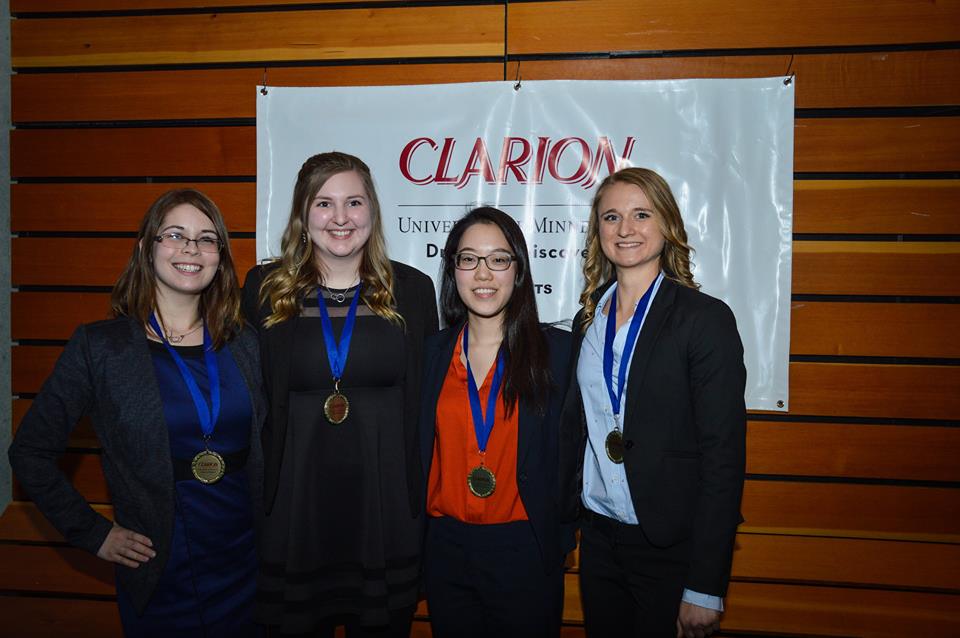For several months earlier this year, a four-member health team worked diligently to help two 64-year-old individuals overcome their addiction to opioids. Adding to the patients’ challenges were the fact they live in a rural West Virginia mining community racked by the opioid epidemic, their access to health care services was slim and the locals’ tolerance for “outsiders” swooping in to “fix things” was nil.

The health care team went to work. One member had an acquaintance in the community who helped them understand its realities, culture and people. They watched a documentary on the opioid crisis in America. They scouted for grants and government funding to support their proposal. Most important, they came up with solutions that utilized local resources.
“Not only did we analyze the root causes of the problem, but we honed-in on things in the community that are working,” says team member Da Hee “Mary” Lee, a dual-degree DMU student in osteopathic medicine and public health. “We proposed having community leaders, who are volunteers passionate about helping their community, get training; increasing local medical providers’ knowledge and public health education; and helping with specific issues like transportation. It was a ‘people helping people’ approach.”
Adds teammate Autumn Hargraves, a first-year DMU osteopathic medical student: “We had patients in the case, but our real patient was the community itself.”
While this scenario was fictional, the team’s approach was a winner in the 2018 CLARION National Case Competition held April 14 at the University of Minnesota. CLARION, a student organization there dedicated to improving health care through interprofessional education, began a local competition in 2002 and expanded it to the national level in 2005. Four-member student teams, representing at least two health care disciplines, are given a case for which they present a root cause analysis and a proposal to a panel of interprofessional judges. This year, 16 teams competed for scholarship prizes.
In addition to Lee and Hargraves, members of the winning team were two students in Drake University’s College of Pharmacy and Health Sciences – Lauren Blum, a third-year pharmacy student, and Kate Crane, a second-year student in the occupational therapy doctoral program. They agree their varying professional perspectives made working together challenging at times, but in the end that was their strength.
“There is no way our proposal would have been half of what it was without our unique perspectives coming together,” Crane says. “The utilization and desire of each of us to understand all of our very unique perspectives allowed us to be successful. And I believe in the long run of health care, this is how it should be.”
While the project entailed months of hard work, the students say it was worth it in the real-world knowledge they gained, the research and presentation skills they honed and the connections they made to their studies. They also agree they’ll carry the experience into their careers.
“A big thing I learned while working on this case was that every health care profession is important and has a unique viewpoint that needs to be taken into consideration when tackling huge problems like the opioid crisis,” Blum says.
The experience was powerful as well.
“It’s one thing when you see a situation as a written case,” says Hargraves, “but one of the judges was from that area of West Virginia and had buried six friends in the past year.”
Winning was icing on the cake. “It truly was the most humbling and amazing experience I have ever had,” Crane says. “And then after to be told the judges that ‘if we are the future of health care, then health care is in good hands,’ to validate our work and that we are on the right track, was so beyond inspiring.”

